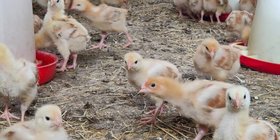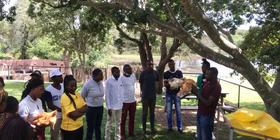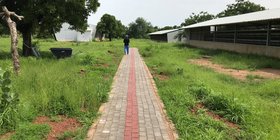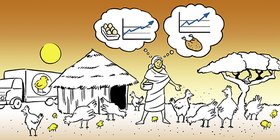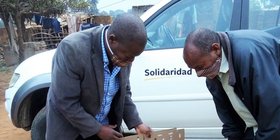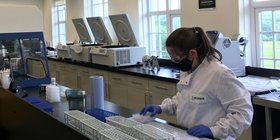Sustainable Access to Poultry Parent Stock to Africa
Superior poultry breeds are key to improving the lives of African smallholder farmers. As one of the world’s major players in the animal breeding industry, we have committed ourselves to providing sustainable genetic solutions to help solve the global food challenge.
What is SAPPSA?
The SAPPSA project (Sustainable Access to Poultry Parent Stock to Africa) was initiated to give rural African farmers access to improved genetics with tailored breeds that perform well to the local needs and environmental pressures of the region. In 2018, Hendrix Genetics received a multi-year grant from the Bill & Melinda Gates Foundation for this project with the objective to:
- Secure access of poultry parent stock
- Improve dual-purpose breeds for African smallholder farmers
- Grow APMI initiatives within and across countries
The African Poultry Situation
Africa represents one of the fastest growing continents in the world. One of the key drivers of this growth is with poultry, where raising them is an important source of income for poor, rural communities in many African countries. However, raising poultry in rural Africa is not an easy task. Besides strong climate and environmental pressure, local indigenous chickens have low levels of productivity and high mortality rates.
Therefore, the SAPPSA project was initiated to secure the supply of good quality parent stock genetics to African smallholder farmers. Parent stock refers to the breeders that produce the end-product birds (commercial birds) that go to the smallholder farmers. SAPPSA draws its strength from Hendrix Genetics as one of the world’s leading animal breeding companies. By studying and measuring the traits that will result in the best performing bird in Africa, the SASSO bird was chosen for this project for their nature as dual-purpose chickens, slow growing birds which have good egg and meat productivity, are low cost, and more disease resistant.
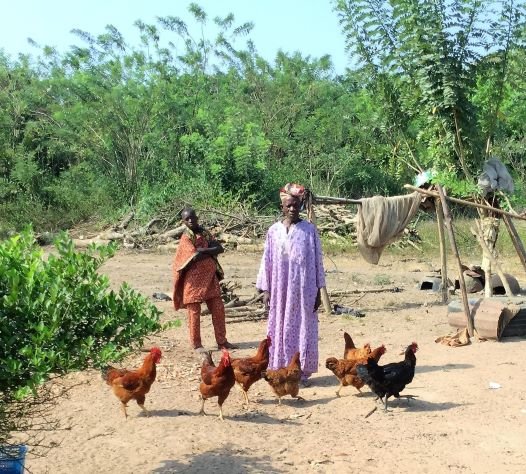
How it works
The way in which SAPPSA works is that it builds upon existing and established projects such as the “African Poultry Multiplication Initiative” or APMI. This is a model that is led by the World Poultry Foundation and supported by the Bill & Melinda Gates Foundation. It operates on the simple basis of sustainable development by securing the chain between hatcheries, mother units, and smallholder farmers. In this model, hatcheries are responsible for hatching day-old chicks and giving vaccinations, mother units are responsible for raising the chicks to teen chickens, and smallholder farmers complete the chain by raising the teen chickens to adulthood. Alongside this, it also helps with supplying the local African members with education on best practices for nutrition, housing, and poultry biosecurity.
The sector in which the SAPPSA project is targeting is different from that of intensive animal farming. This approach to animal husbandry, also known as “factory farming”, is centered around minimizing costs and maximizing production. This is not the market that the SAPPSA project is targeting but rather targeting extensive rural systems, a market which has largely been ignored and undeveloped.
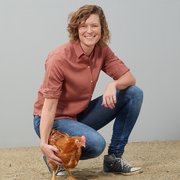
With the SAPPSA project, we want to make sure smallholder farmers in Sub-Saharan Africa have more and more access to these dual-purpose chickens and that they have the right breed for their needs.
A better future
We are proud to be leading a project that will create a positive impact on the lives of millions of people. By working together, we can help achieve a better and more sustainable future for us all. The project has the potential to transform the lives of many smallholder farmers; contributing towards a solution for world hunger by empowering farmers to build a better life and secure their income with tailored breeds. By doing so, SAPPSA also helps to support 3 of the 17 Sustainable Development Goals drawn up by the United Nations:
- Increasing income of rural households with highly productive and economical chickens, reducing the effects of poverty.
- Feeding the growing population with nutritious protein.
- Gender empowerment measures to establish poultry enterprises owned and operated by women.

Our stories
One of the ways in which we realize our commitment to help solve the global food challenge is through developing local sustainability initiatives. We are proud to be able to lead SAPPSA, a project funded by the Bill & Melinda Gates Foundation, and collaborate with many other stakeholders to bring prosperity to African smallholder farmers through superior poultry breeds.
Helpful resources
The US-based World Poultry Foundation (WPF) has developed a series of online training videos to help emerging African poultry farmers learn poultry farming best practice and optimise their farming operations.

